
Activision Publishing, Inc. is an American video game publisher based in Santa Monica, California. It serves as the publishing business for its parent company, Activision Blizzard, and consists of several subsidiary studios. Activision is one of the largest third-party video game publishers in the world and was the top United States publisher in 2016.

Star Trek: Armada is a real-time strategy video game for Microsoft Windows developed and published in 2000 by Activision. The game's look and feel is based primarily on Star Trek: The Next Generation, and features a few of its main characters and ships. Playable factions include the United Federation of Planets, the Klingon Empire, the Romulan Star Empire and the Borg. The game received mixed to positive reviews and was noted for being one of the better Star Trek games to be made. A sequel, Star Trek: Armada II, was released on November 16, 2001.
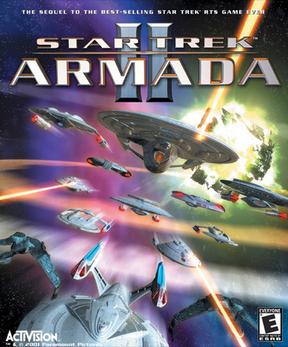
Star Trek: Armada II is a real-time strategy video game published by Activision in 2001, based upon the Star Trek universe. The game was developed by Mad Doc Software. It is the sequel to Star Trek: Armada. Star Trek: Armada II was released by Activision a year after they acquired the full rights to all the franchise holding of the video game's franchise from Viacom. It was the first of the three major Star Trek video game sequel titles that were released by Activision from 2001 until their departure from the franchise in 2003. On December 13, 2021, both Armada and Armada II were re-released on GoG.com, which had also released several other older Star Trek titles earlier that year.

Take-Two Interactive Software, Inc. is an American video game holding company based in New York City founded by Ryan Brant in September 1993.
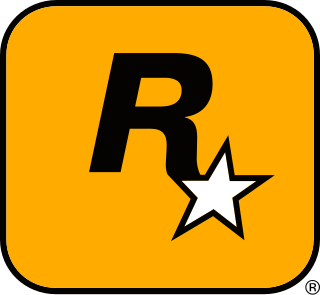
Rockstar Games, Inc. is an American video game publisher based in New York City. The company was established in December 1998 as a subsidiary of Take-Two Interactive, using the assets Take-Two had previously acquired from BMG Interactive. Founding members of the company were Terry Donovan, Gary Foreman, Dan and Sam Houser, and Jamie King, who worked for Take-Two at the time, and of which the Houser brothers were previously executives at BMG Interactive. Sam Houser heads the studio as president.

Rockstar Games UK Limited is a British video game development company and a studio of Rockstar Games based in Edinburgh. The company was founded as DMA Design in Dundee in 1987 by David Jones, soon hiring former classmates Mike Dailly, Russell Kay, and Steve Hammond. During its early years, DMA Design was backed by its publisher Psygnosis, primarily focusing on Amiga, Atari ST and Commodore 64 games. During this time, they created successful shooters such as Menace and Blood Money, but soon turned to platform games after the release of Lemmings in 1991, which was an international success and led to several sequels and spin-offs. After developing Unirally for Nintendo, DMA Design was set to become one of their main second-party developers, but this partnership ended after Nintendo's disapproval of Body Harvest.

Star Trek: Away Team is an isometric real-time tactics video game developed by Reflexive Entertainment and published by Activision. The game was initially released in March 2001 for personal computers using Microsoft Windows in North America. The game is set in the Star Trek universe, after the end of the Dominion War seen in the television series Star Trek: Deep Space Nine. It features a range of new characters, set on board the USS Incursion with voice appearances by Brent Spiner and Michael Dorn as Lieutenant Commander Data and Ambassador Worf, respectively. The game received mixed reviews, with criticism directed at the graphics, elements of the gameplay including the lack of any artificial intelligence, and the limited length of the game.
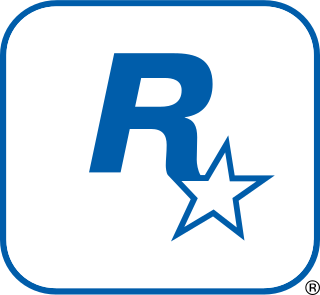
Rockstar Leeds Limited is a British video game developer and a studio of Rockstar Games based in Leeds. Ian J. Bowden, Dave Box, Gordon Hall, and Jason McGann founded the company as Möbius Entertainment in December 1997 after working together at the studio Hookstone. Möbius worked with SCi on two games: Alfred's Adventure, a remake of the Twilight-developed Alfred Chicken, and the cancelled Titanium Angels. From 2001 on, the studio created Game Boy Advance games for several publishers, including multiple for The 3DO Company and Max Payne for Rockstar Games.

Rockstar Games Toronto ULC is a Canadian video game developer and a studio of Rockstar Games based in Oakville, Ontario. The company was established as Imagexcel in the early 1980s and developed more than fifteen games under that name, including Quarantine, which was published by GameTek in 1994. The publisher bought the studio's assets through its Alternative Reality Technologies subsidiary in March 1995 and then sold Alternative Reality Technologies to Take-Two Interactive in July 1997. The studio became part of Take-Two's Rockstar Games label as Rockstar Canada in 1999 and was renamed Rockstar Toronto in 2002 when Take-Two acquired Rockstar Vancouver. Under Rockstar Games, the studio developed the 2005 game The Warriors, based on the 1979 film of the same name, as well as several ports, including the Windows versions of Grand Theft Auto IV, Grand Theft Auto: Episodes from Liberty City, Max Payne 3, and Grand Theft Auto V. In July 2012, Rockstar Vancouver was merged into Rockstar Toronto, which then moved into larger offices.

Bully is a 2006 action-adventure video game developed by Rockstar Vancouver and published by Rockstar Games. It was released on 17 October 2006 for the PlayStation 2. A remastered version of the game, subtitled Scholarship Edition, was developed by Mad Doc Software and released on 4 March 2008 for Xbox 360 and Wii, and on 21 October 2008 for Windows. Bully was re-released for PlayStation 4 available via PlayStation Network on 22 March 2016. An updated version of the Scholarship Edition, titled Anniversary Edition, was developed by War Drum Studios and released for Android and iOS on 8 December 2016.
Radical Entertainment Inc. is a Canadian video game developer based in Vancouver. The studio is best known for developing The Simpsons: Hit & Run (2003), Scarface: The World Is Yours (2006), Prototype (2009) and Prototype 2 (2012), as well as entries in the Crash Bandicoot franchise. Radical Entertainment was founded in September 1991 by Rory Armes, Dave Davis, and Ian Wilkinson. It was acquired by Vivendi Games in 2005 and transferred to Activision in 2008. The studio faced significant layoffs in 2010 and 2012, with the latter causing it to cease development of original games and only support other Activision studios.

Rockstar London Limited is a British video game developer and a studio of Rockstar Games based in London. Mark Washbrook established the company in November 2005 within Rockstar Games' European publishing offices. The studio's first game was Manhunt 2, which it took over from Rockstar Vienna after that studio was shut down in May 2006. Rockstar London later developed Midnight Club: L.A. Remix and co-led the development of Max Payne 3. Washbrook left the company in January 2011.

Rockstar Vancouver Inc. was a Canadian video game developer and a studio of Rockstar Games based in Vancouver. The studio is best known for developing Bully (2006).

Rockstar Lincoln Limited is a British video game developer based in North Hykeham. It is the quality assurance and localisation studio of Rockstar Games. Steve Marsden and David Cooke founded the company as Spidersoft in May 1992. Initially, it primarily developed Game Boy and Game Gear ports of various titles, including pinball video games for publisher 21st Century Entertainment, which acquired Spidersoft in 1995. After 21st Century Entertainment shut down in March 1998, Take-Two Interactive acquired Spidersoft in June that year and renamed it Tarantula Studios. The studio continued working on Game Boy and Game Boy Color games, such as Grand Theft Auto (1999). In 2002, the development arm of Tarantula Studios was shut down and the quality assurance portion was integrated into Take-Two's Rockstar Games label as Rockstar Lincoln.

Empire Earth III is a real-time strategy video game developed by Mad Doc Software and published by Sierra Entertainment, released on November 6, 2007. It is the latest installment of the Empire Earth series.
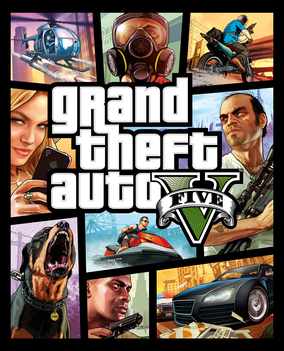
Grand Theft Auto V is a 2013 action-adventure game developed by Rockstar North and published by Rockstar Games. It is the seventh main entry in the Grand Theft Auto series, following 2008's Grand Theft Auto IV, and the fifteenth instalment overall. Set within the fictional state of San Andreas, based on Southern California, the single-player story follows three protagonists—retired bank robber Michael De Santa, street gangster Franklin Clinton, and drug dealer and gunrunner Trevor Philips, and their attempts to commit heists while under pressure from a corrupt government agency and powerful criminals. Players freely roam San Andreas's open world countryside and fictional city of Los Santos, based on Los Angeles.
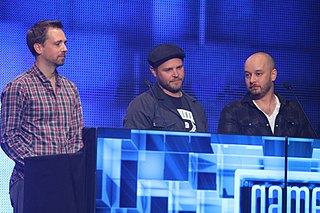
A team of approximately 1,000 people developed Red Dead Redemption over five years. Rockstar Games published the action-adventure game in May 2010 for the PlayStation 3 and Xbox 360, and in August 2023 for the Nintendo Switch and PlayStation 4. A spiritual successor to the 2004 game Red Dead Revolver, its development was led by Rockstar San Diego's core 180-person team, who collaborated with Rockstar's Leeds, New England, North, and Toronto teams to assist development; Rockstar North, developer of the Grand Theft Auto series, consulted in the creation of the open world. After its announcement in 2009, the game was fervently promoted with press showings, cinematic trailers, and viral marketing strategies. Its release date, though subject to several delays, was widely anticipated. The working hours and managerial style of the studio during development was met with public complaints from staff members.


















